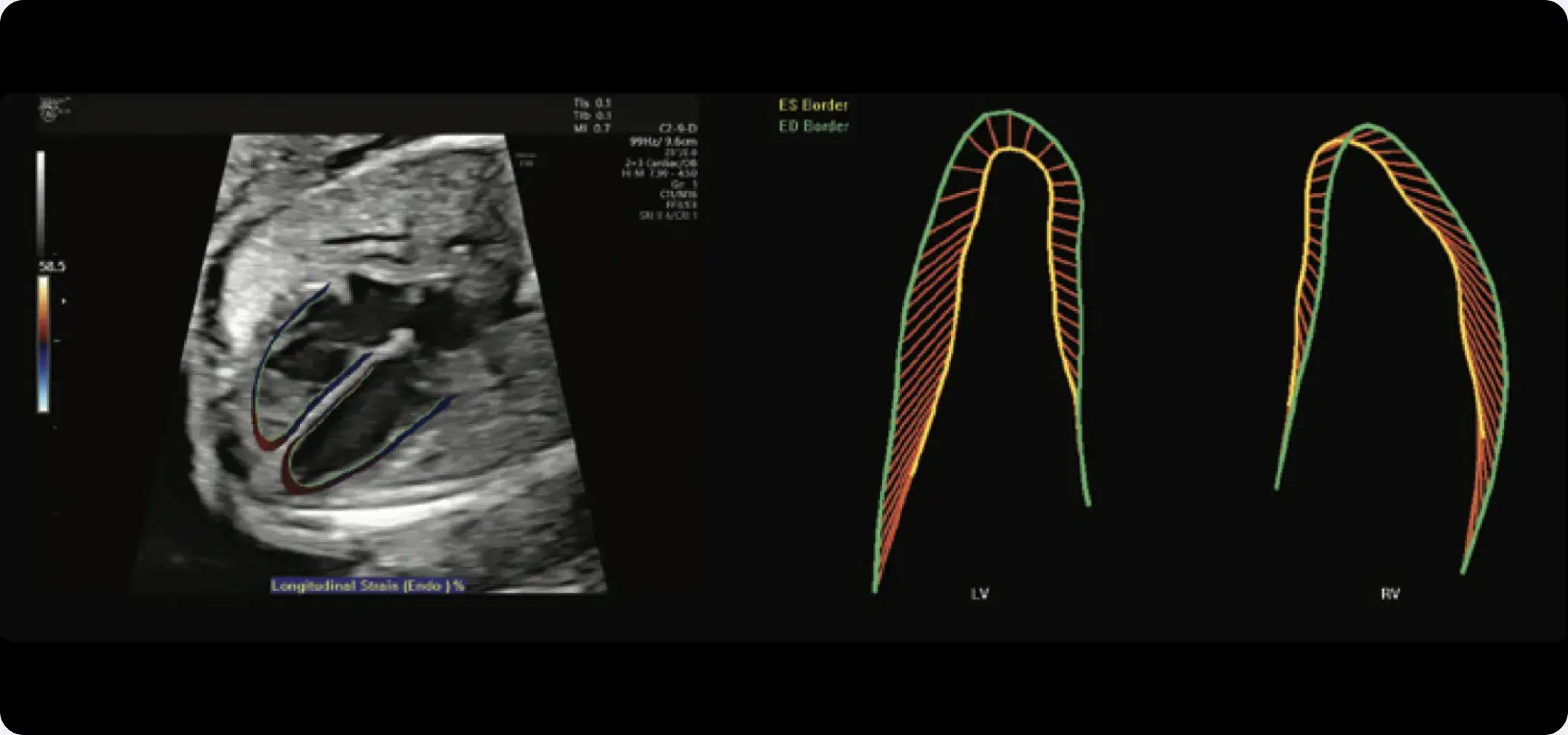
fetalHQ
Faster identification of abnormal
function, size and shape of the heart
Maternal Fetal Medicine specialists face complicated pregnancies every day. Detecting and diagnosing fetal heart anomalies is one of the most difficult evaluations. However, foreseeing outcomes for compromised fetuses may prove more challenging. Congenital heart defects, Intrauterine Growth Restriction (IUGR) and Twin to Twin Transfusion Syndrome (TTTS) are just a few things that can impact the function of the fetal heart. GE HealthCare’s dedication, coupled with collaboration with fetal echocardiography experts, has led to the development of fetalHQ. By monitoring the size, shape and contractility of the fetal heart, you have access to additional data to make more informed decisions about maternal/fetal well-being and delivery planning.

Why evaluate fetal heart size, shape and contractility?

Size
The fetal heart can compensate for deficiencies by growing in size and/or becoming hypertrophic.

Shape
The fetal heart can become more rounded (globular) with cardiac dysfunction as it compensates for lack of oxygen (valvular disease)

Contractility
The fetal heart can compensate for deficiencies by growing in size and/or becoming hypertrophic.
Download more information on the fetalHQ fetal heart assessment tool
Download more information on the fetalHQ fetal heart assessment tool
Download Configure my Voluson
 Clinical specialty
Clinical specialty




